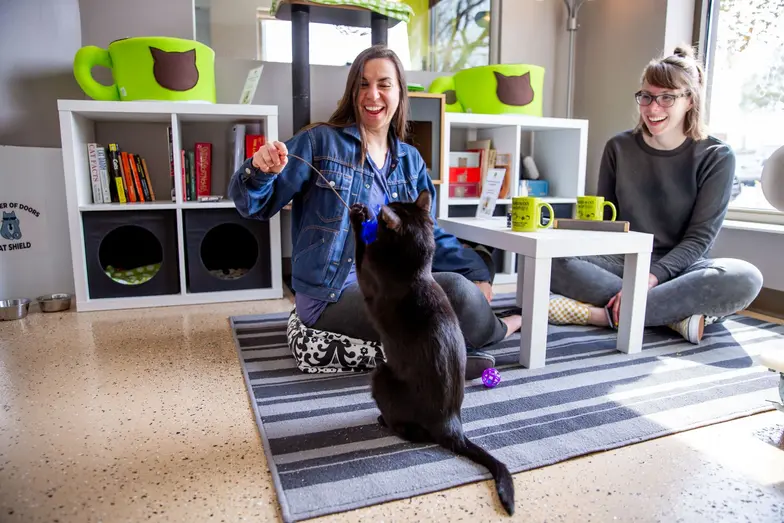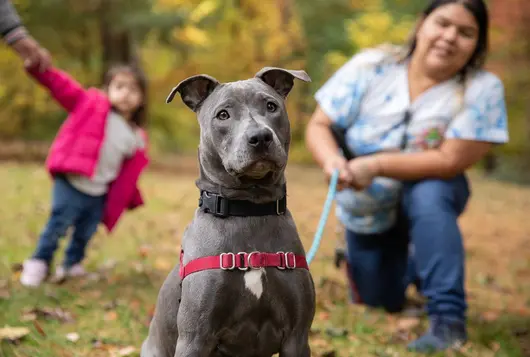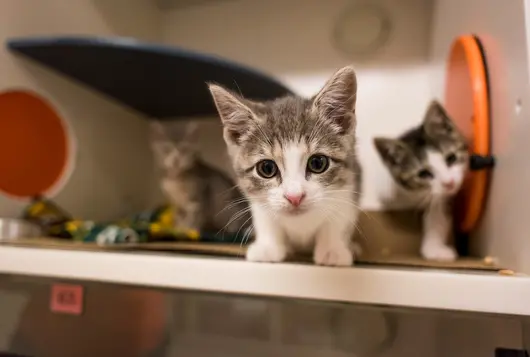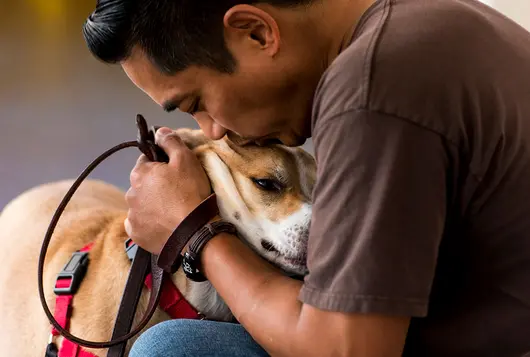Why Shelters Should Waive Cat Adoption Fees

According to research conducted at the Edmonton Humane Society (EHS), the ASPCA®'s Dr. Margaret Slater confirmed fee-waived cats are just as loved and valued as cats with a price tag.
The study analyzed surveys of 344 adopters who participated in 1 of 6 fee-waived events held at the shelter from November 2011 to February 2013. This research is compelling because it directly compares 138 non-fee-waived adopters to 206 fee-waived adopters at the same shelter during the same period.
Edmonton's fee-waived promotions were often seasonal, and the agency included long-term shelter residents and older cats. "Based on our research, fee-waived adoptions are well worth considering as a way to increase live releases," says Dr. Slater.
Waiving Adoption Fees Helps Cats and Shelters
As suggested by the 2006 seminal research on fee-waived cat adoptions by the ASPCA's Dr. Emily Weiss, waiving fees increases adoptions and engages communities to help felines in need.
Latest research at EHS bolsters the value of fee-waived adoptions:
- There was no statistical difference in post-adoption veterinary care received by fee-waived and non-fee-waived cats. Regardless of fee status, most adopters brought their cats for follow-up veterinary care.
- There was no statistical difference between fee-waived and non-fee-waived adopters when retaining cats into the future. In other words, fee-waived cats were just as likely to remain in their homes as non-fee-waived cats.
- More than 80% of the people who participated in the fee-waived study said they "strongly agree" that EHS considers cats valuable and that they would adopt from EHS again. This is essential information for shelters to alleviate fears that the public will get a false impression that fee-waived cats are not valued.
More Adopters During Fee-Waived Events
Fee-waived events bring out adopters.
Dr. Karen Lange, director of veterinary services for EHS, says they see a 50% increase in cat adoptions during fee-waived events.
Another piece of good news from the study is that 87% of adopters of fee-waived cats considered the length of time a cat had been at the shelter as a factor in selecting their cats. In contrast, only 13% of regular adopters considered a longer-stay cat. This suggests that fee-waived programs entice adopters who are explicitly trying to be part of the solution to homeless cats. One study participant said she was saving up to buy a specific breed of cat, "but after hearing about the fee-waived event, I decided to help a cat in need." And another fee-waived adopter was a former Birman cat breeder who decided "to get an ordinary cat who needed a good home."
Several adopters mentioned that they had been considering adopting for months but had done nothing about it. The fee-waived events provided the incentive for them to adopt.
Waiving Adoption Fees Makes Pet Ownership More Accessible
The study showed that 19% of the adopters reported they could not afford the regular adoption fee. An EHS fee-waived adopter described herself as "a woefully underemployed single mother who budgets and saves for monthly cat care, so the fee-waived event made a big difference for me."
However, the research also showed that even among those who could afford to pay the adoption fee, 30% said they would prefer a free cat. On top of that, Slater's research discovered that fee-waived adopters were much more likely to make a donation to EHS than non-fee-waived adopters.
Discover how things went when the ASPCA's Adoption Center embraced fee-waived cat adoptions.
We have lots more on this subject:


